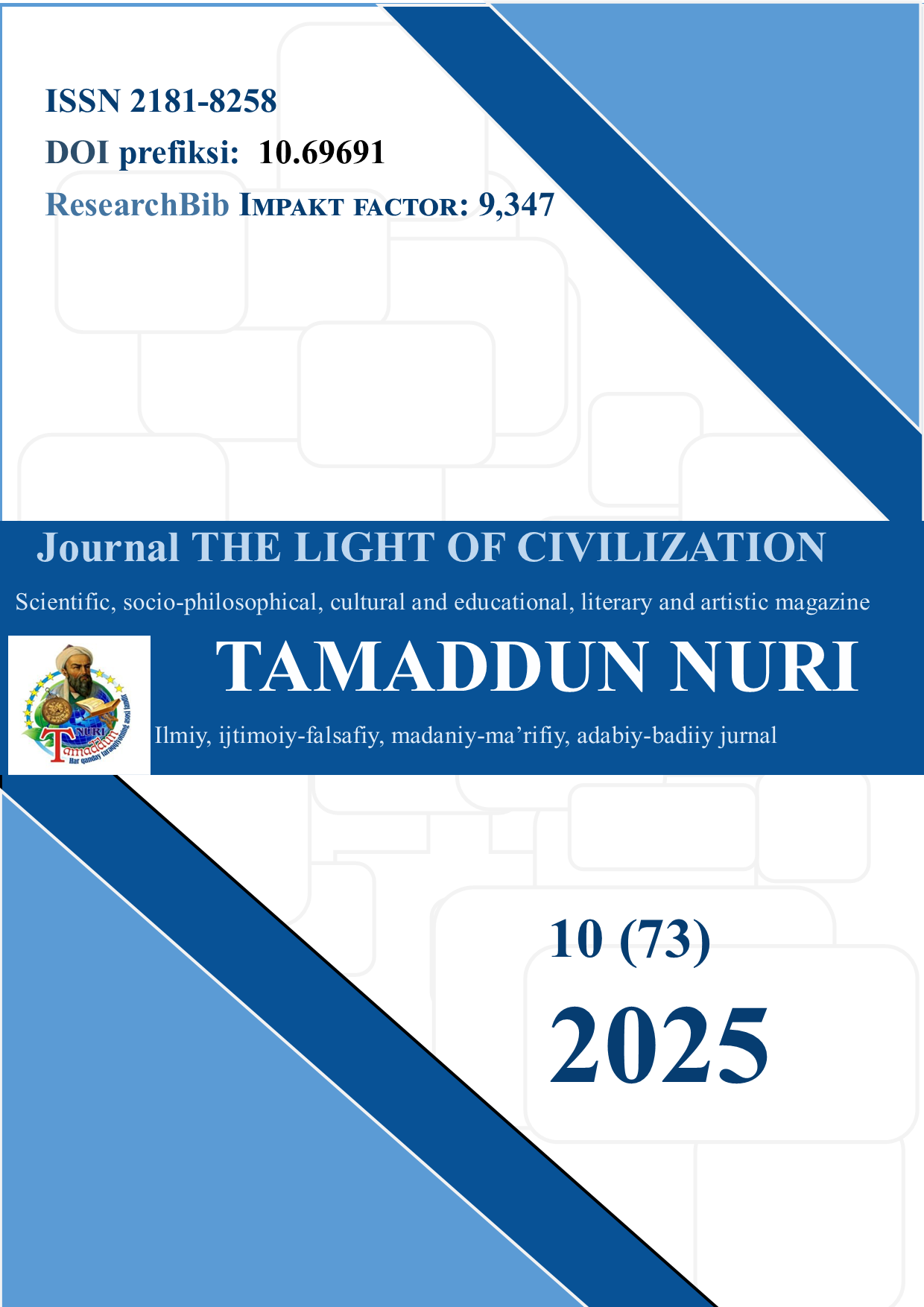THE FUTURE ROLE OF ARTIFICIAL INTELLIGENCE (AI) IN LEARNING ENGLISH WITHIN DIGITAL EDUCATION
DOI:
https://doi.org/10.69691/8am8rd26Keywords:
artificial intelligence, English language teaching, digital education, British Council, AI technologies.Abstract
This article examines the role, potential, and future prospects of Artificial Intelligence (AI) in English language teaching within the context of digital education. Based on the comprehensive British Council (2024) report, the study explores how AI technologies influence the teaching process, assist teachers, and enhance learners’ engagement and performance.
References
British Council. Artificial Intelligence and English Language Teaching: Preparing for the Future. London: British Council. 2024.
Brown T. Artificial Intelligence in Education: Supporting Teachers, Not Replacing Them. Educational Innovations Journal, 12(3), 2021. – P.33–46.
Johnson R. The Role of Artificial Intelli-gence in Grammar Learning and Feedback. Lan-guage and Education Review, 18(4),2023.P.78–92.
Lee C. AI as a Complementary Tool in ELT: Pedagogical Perspectives. Asia-Pacific ELT Journal, 9(1), 2023. – P.22–35.
Piaget J. Biology and Knowledge. University of Chicago Press. 1971.
Russell S., & Norvig P. Artificial Intelligence: A Modern Approach. 4th Edition. Pearson Education. 2020.
Smith A. AI-Based Chatbots in Language Learning: Enhancing Communication Skills. Journal of Educational Technology Studies, 15(2), 2022. – P.45–57.
Trajectory Partnership. AI and English Language Learning: Global Trends and Demographics. – London. 2018.
Woolf B. P. Building Intelligent Interactive Tutors: Student-Centered Strategies for Revolutionizing E-Learning. Morgan Kaufmann. 2010.
Downloads
Published
Issue
Section
License
Copyright (c) 2025 Journal of Tamaddun Nuri

This work is licensed under a Creative Commons Attribution-NoDerivatives 4.0 International License.



